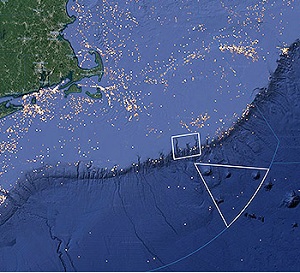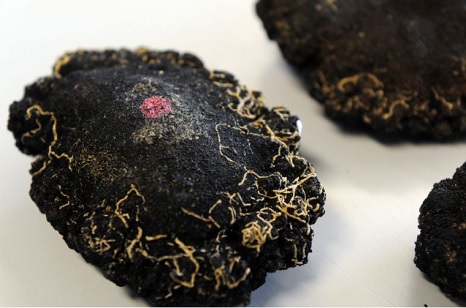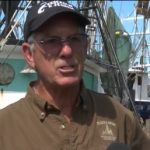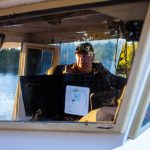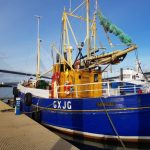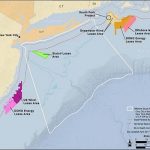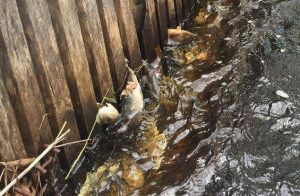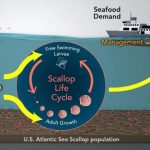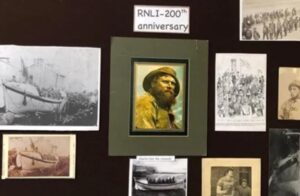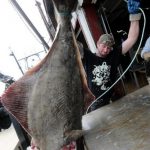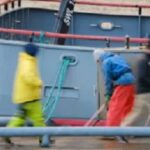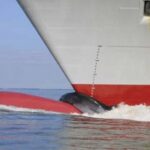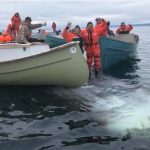Category Archives: Western Pacific

Joseph Anthony Gann of San Diego has passed away
Joseph was born in the fishing port of Gloucester, Massachusetts, on December 19, 1925. He then moved to San Diego in 1926 at the age of one, with his parents Vincent and Nazare, and his two brothers Vincent and Edmond. Joe’s sister Lillian was born a few years later. His father built and operated a commercial fishing clipper.,, Joe then entered the fishing business with his brother Edmond and formed their company Caribbean Marine Service Co. Inc.; they soon became successful tuna-fishing fleet owners.,,, Joe went to congress to fight the 200-mile limit, and then in the 1970’s, along with Julius Zolezzi, he went to Samoa to facilitate the Fishing Treaty between the United States and Samoa. >click to read< 13:44
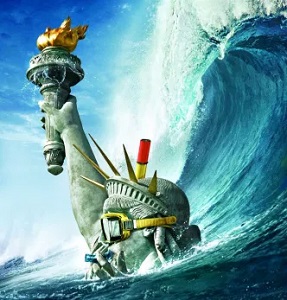
Are Temperatures and Sea Levels Rising Dangerously? Hardly
There are two widely held climate-change beliefs that are simply not accurate. The first is that there has been a statistically significant warming trend in the U.S. over the last 20 years. The second is that average ocean levels are rising alarmingly due to man-made global warming. Neither of these perspectives is true; yet both remain important, nonetheless, since both are loaded with very expensive public policy implications. To refute the first view, we turn to data generated by the National Oceanic and Atmospheric Administration (NOAA) for the relevant years under discussion. >click to read< 14:24
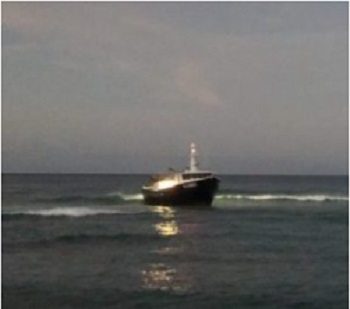
UPDATED: Search suspended – Coast Guard, partners search for missing fisherman off Big Island
Multiple rescue crews are searching for a 32 year-old male who is reported to have fallen overboard late Wednesday. At 4:50 p.m., Wednesday, Sector Honolulu watchstanders received a phone call from the master of the commercial fishing vessel F/V Sea Goddess reporting the situation. Sector Honolulu watchstanders immediately issued an urgent marine information broadcast and launched rescue crews including partner agency assets. >click to read< 21:50
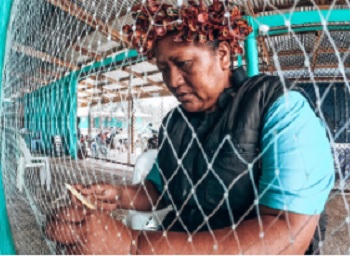
Fishing workshop upskills in Mauke
Forty-one keen fishermen including five women took part in a fishing workshop on the island of Mauke last week. Mauke’s fisheries officer Tai George was happy to see the women participate in the course. “It’s good more people are showing an interest; the mamas also learnt to repair and make fishing nets,” he said. The Cook Islands Fishing Association in partnership with the Ministry of Marine Resources (MMR) conducted the workshop over three days. Practical sessions included engine/outboard motor maintenance, trailer repairs, fishing techniques,,, >click to read< 11:51
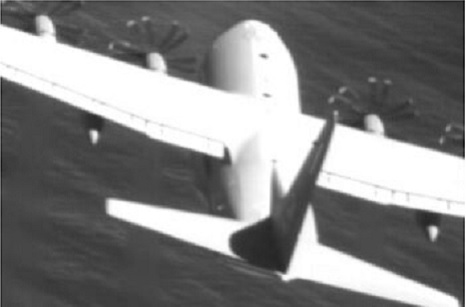
Video: U.S. Coast Guard, Air Force, and Navy medevac fisherman from commercial fishing vessel off Hawaii
The Coast Guard, Air Force, and Navy successfully medevaced a 73-year-old fisherman from the 84-foot commercial fishing vessel Lady Alice 150 miles east of Hilo, Friday. At 7:37 a.m., Monday, the owner of the Lady Alice notified JRCC watchstanders that the master of the vessel appeared to be suffering symptoms of a stroke. The mariners aboard provided medication to the patient and were instructed by JRCC watchstanders to monitor his condition and maintain scheduled communication. Duty flight surgeons from the Coast Guard and Air Force were consulted and recommended sending Air Force pararescue jumpers from the 129th Rescue Wing to the vessel before the mariner’s condition deteriorated. Video >click to read< 10:22
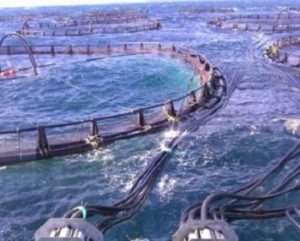
Senators Introduce Legislation to Establish Offshore Aquaculture Standards
Senators Wicker-R, Schatz -D and Rubio -R introduced legislation, the Advancing the Quality and Understanding of American Aquaculture (AQUAA) Act (S. 4723) in the U.S. Senate. The bipartisan AQUAA Act, which has companion legislation in the U.S. House, would support development of an offshore aquaculture industry in the U.S. to increase the production of sustainable seafood and establish new economic opportunities in federal waters. >click to read< 13:43
 First Nations, commercial fishermen demands end to B.C. salmon farms – A broad coalition of First Nations leaders, wilderness tourism operators, environmental NGOs and commercial and sport fishing organizations gathered in North Vancouver Sept. 22 demanding the federal government fulfill recommendations of the Cohen Commission to immediately remove open-net salmon farms from the Discovery Islands, and abolish all others from BC waters by 2025. >click to read<
First Nations, commercial fishermen demands end to B.C. salmon farms – A broad coalition of First Nations leaders, wilderness tourism operators, environmental NGOs and commercial and sport fishing organizations gathered in North Vancouver Sept. 22 demanding the federal government fulfill recommendations of the Cohen Commission to immediately remove open-net salmon farms from the Discovery Islands, and abolish all others from BC waters by 2025. >click to read<
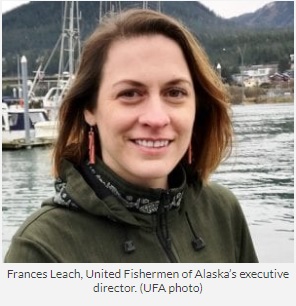
Seafood Trade Relief Program: USDA tweaks farm assistance program to fund fishermen hurt by U.S. China trade war
Jeremy Leighton is a dive fisherman based in Ketchikan. But it’s not just geoduck fishermen. Frances Leach heads up United Fishermen of Alaska, a fishing industry group. “China seems to be one of the biggest markets for a lot of our seafood products in Alaska. And not just buying them for consumption, but also processing. We send a lot of seafood over to China to be processed,” Leach said. Now, Leighton and thousands of other U.S. fishermen could be eligible for a new program designed to help fishermen hurt by the tariff on seafood. It’s an Agriculture Department initiative called the Seafood Trade Relief Program. U.S. Sen. Dan Sullivan said it’s a new twist on an old trade war strategy. “There have been long standing U.S. Department of Agriculture programs that provide relief to farmers, when their products exported are hit with retaliatory tariffs,” Sullivan said. >click to read< 10:21
Good Morning! We celebrate our eighth birthday today.
Good Morning! It’s our birthday today. We’ve calculated some statistics from the back side of the website, to give a little insight Into the past eight years. In the past eight years, we’ve had 8,186, 234 visits. Our best day ever, 72, 221! We’ve posted 27, 725 posts, which are trails to articles collected daily, inventoried, categorized, and shared around the globe. We have tried to provide an accurate snapshot of the industry, continuously updated, daily, for eight years, which is ninety six months, and an average of 289 posts per month, which comes up to 9.6 posts per day, as an average day. We have posted 839 pages, (example), this, and this, and this, submitted from fishermen, former fishermen and industry representatives from around the world. This is the page with our first four posts on our first day. We have so many people to thank, including one gentleman that never forgets us, and Cousin Patty. We will pay you back someday! Thank you! Carol, and Bore-head 007. Time to set out for our first tow of the day! 08:15
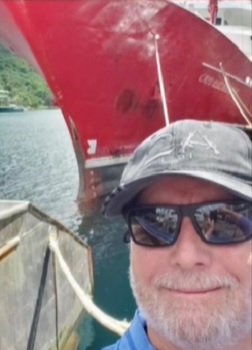
Commercial Tuna Fisherman Pete Battaglia and dozens of others working in the tuna industry are stuck in American Samoa
Battaglia is a long-time navigator in the tuna industry and runs U.S. boats out of American Samoa, which along with being a U.S. territory is also one of our country’s tuna hubs. While Battaglia and his crew were out at sea at the beginning of March, the COVID-19 pandemic led to new travel restrictions across the world. The fishermen returned to port to find customs agents in hazmat gear and commercial travel suspended to and from the island. Weeks have now turned into months and their family members fear their return could be well past Christmas. >click to read< 07:20
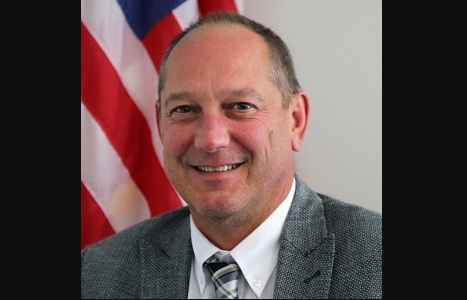
A Letter to NOAA Fisheries Assistant Administrator Chris Oliver about the resumption of Observer coverage
Mr. Oliver. Recently you sent out an announcement about the resumption of Observer coverage set to begin on August 14th in fisheries where coverage had been suspended due to the Corona virus outbreak for the last 5 months. Personally I find your reasons for the resumption of observer coverage to be not only reckless, but dangerous to the health and safety of the American fishermen who make their living from the sea.,, Yet you, in your infinite bureaucratic knowledge of what is right and what is wrong, think that at this time it is vitally important that observers be placed on fishing vessels where they can endanger the health of not only the crewmen but their families. Interestingly, you have not put your own employees at risk. You have cancelled trawl survey’s for the remainder of this year so as not to risk their exposure to this lethal disease. This despite the fact that the NOAA trawl survey vessels are state of the art, and their crew could actually be quarantined before a trip to assure their safety. I’m sure they would be happy to collect two weeks of pay for sitting around watching TV somewhere. >click to read< 15:05

A message from Chris Oliver on National-Level Observer Waiver Criteria; Redeployment in Northeast To Begin
To improve transparency in our approach to observer deployment, we have established national-level criteria for vessels to be waived (released) from observer or at-sea monitor coverage. Going forward, observer or monitor coverage may be waived, for both full and partial-coverage fisheries, on a trip-specific basis if one of the following two criteria are met: (1) Observers or at-sea monitors are not available for deployment; or (2) The observer providers cannot meet the safety protocols imposed by a state on commercial fishing crew or by the vessel or vessel company on its crew. Within our limited authority, our efforts are intended to ensure observers and monitors are following the same safety protocols that fishermen are following. >click to read< 17:50
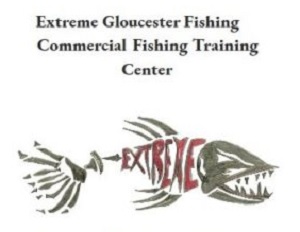
SURVEY: Please Help Extreme Gloucester Fishing: Restructure, Retool, Retrain, Revive and Reunite the U.S. Commercial Fisheries
Extreme Gloucester Fishing Commercial Industry Training Center is doing a U.S. Commercial Fisheries Survey – Please help Extreme Gloucester Fishing with our efforts to Restructure, Retool, Retrain, Revive and Reunite the U.S. Commercial Fisheries Take the Survey. 1. Do commercial fishermen care about their industry? 2. Should fish be owned before they are caught?, 3.,,, >click to read<, and please leave comments or suggestions, and connect with others to get things started! Thank you, Captain Joseph Sanfilippo 10:30
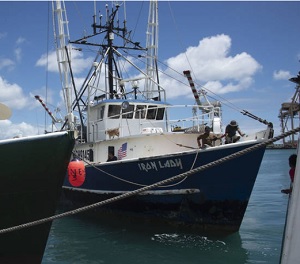
Honolulu mayor announces new ‘fish-to-dish’ program to help Hawaii’s struggling fishing industry
“We have an incredible longline fishing industry,” said Caldwell during a news conference at Pier 38, “and local fishermen who go out every day in grueling conditions, catching fish and bringing it back to feed our residents and visitors.” But the longline fishing industry has lost an estimated $10 million, or about 60% in revenue, since mid-March lockdowns went into effect due to the pandemic, Caldwell said. In an effort to help, he said the city is committing $2.6 million in federal coronavirus funds to help the fishing industry get back on its feet. The “fish-to-dish” program will work in partnership with the Hawaii Longline Association, the United Fishing Agency, which runs the fish auction, and Hawaii Seafood Council to distribute fish to the community.>click to read< 08:23

#FishermensLivesMatter: Until this pandemic is over, say no to fishery observers being placed on fishing vessels
On July 1st the Trump Administration’s agency, NOAA will require that fishing vessels resume taking fishery observers on their fishing trips. Due to the Coronavirus pandemic these activities have been suspended for almost three months due to the danger of spreading the deadly disease among the
fishing industry and their families. Fishery observers are required by National Marine Fishery Service regulations to observe commercial fishing operations in almost all of our countries fisheries based on various criteria that include likelihood of interaction with marine mammals or other protected species, amount of bycatch in each fishery, adherence to regulations, and anything else they can justify to support this huge taxpayer money gobbling con game they have created. >click to read< by Jim Lovgren #FishermensLivesMatter 22:27
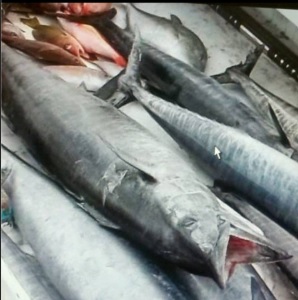
Hawaii’s impact from Corona-Local Fishermen
Aloha Kakou, I am a small commercial fishing/charter boat owner and wanted to bring awareness to our local micro-industry’s condition due to Coronavirus and lack of need for our product. I saw a report regarding the Hawaii long-liner fishing industry, but wanted to express how our local independent fishing and charter boat business have been gravely impacted. So many local fishermen whos sole income is from fishing and selling their catches as well as the charter fishing industry have lost 90-100% of their income due to tourism shutdown and Covid restrictions. >click to read< Mahalo for your time and interest in this information. Capt. Jerry Gillgren, F/V Jovan Lee 16:05
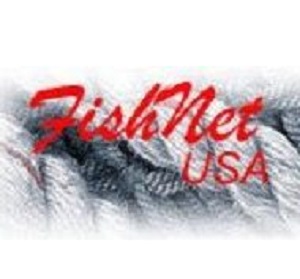
An East Coast Perspective on Coronavirus Impacts
This was initially to be about how the New Jersey commercial fishing industry was coping with the coronavirus crisis. However, there is a seemingly infinite number of websites running commentaries on the national and/or international aspects of the ongoing pandemic in general and, surprisingly, as it specifically applies to and as it affects commercial fishing and the seafood industry. Considering this, sharing more than an overview of what the New Jersey industry, or at least that part of it that I have been in touch with, would probably not have much of an impact. But happily, at this point it seems that U.S. consumers aren’t really as averse to preparing quality seafood at home (when it isn’t available or is only limitedly available elsewhere) as most of us have believed. >click to read< By Nils Stolpe 12:05
Bottom Fish Heritage: Pew said we should give up our permits, because we’re gonna be put of business anyway,,,
In this week’s spotlight video, Kauai fisherman Jonathan Hurd remembers how the fishing community assisted in research in the Northwestern Hawaiian Islands but were phased out with the designation of the monument, “The government offered us a formula of how to buy us out, which was based on previous gross and previous fishing trips, which we didn’t make any money on anyways, so obviously they didn’t pay us enough money for giving up that right to be able to fish there.” 12:39
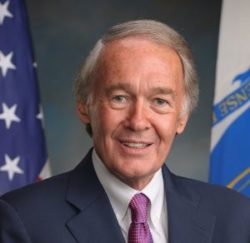
Fighting for fishermen on a bi-partisan, bi-coastal basis during Coronavirus crisis – Senator Ed Markey
Restaurants have shuttered and large export markets have been disrupted. Fishermen have lost access to critical points of sale and sources of income. With a decreased demand for fresh seafood, many boats sit idle in port. Meanwhile, boat payments are due and families need to be fed. In the U.S. Senate, I have been fighting on a bipartisan basis alongside Sen. Elizabeth Warren and Alaska senators Lisa Murkowski and Dan Sullivan to secure dedicated economic assistance for the fishing and seafood industries in COVID-19 economic relief packages. Thankfully, this bi-coastal effort got results. The Coronavirus Aid, Relief, and Economic Security (CARES) Act, enacted into law on March 27, included $300 million in assistance for fishery participants and $9.5 billion for affected agricultural producers. >click to read< 12:22
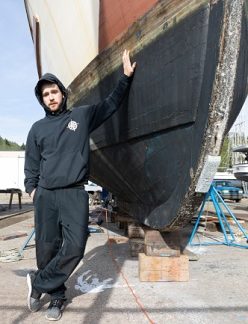
Fishermen’s Superstition’s: No bananas! No Whistling! But above all, it’s bad luck to be superstitious!
Luke Whittaker set out to learn whether there are superstitions that live on among local fishermen. Here’s what he heard. Jerry Matzen III, commercial fishermen “Hang your coffee cup mouth towards the stern so you don’t sink. And no whistling in the wheelhouse or cabin — otherwise you’ll whistle up a storm, like we are having today. I learned the coffee cup one from Kerry Suomela Sr. when I worked on the F/V Southern Cross and it always stuck with me.” Tim Teall, commercial fishermen “Well, to begin with, you never want to paint your boat green because it’ll beach itself in a storm. Never set a coffee cup or a bucket on the boat upside down — the boat will roll over! Don’t whistle in the wheelhouse, because it’ll make it get windy out. But above all, it’s bad luck to be superstitious!” >9 photos, click to read<10:41
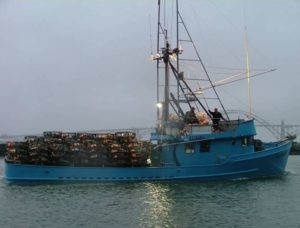
Oregon Fishing Industry Tells Lawmakers Of Economic Hardships – Murkowski pushes for an another Billion in federal fisheries relief funds
The coronavirus has hit Oregon’s commercial fishing industry hard. That was the message to state lawmakers during a recent meeting of the House Interim Committee on Natural Resources. Anthony Dal Ponte is with Pacific Seafood, which is based in Clackamas and has several facilities on the Oregon coast. He said the company had to lay off more than 500 employees after their restaurant and hospitality industry markets dried up virtually overnight. >click to read< Meanwhile, Murkowski pushes for an additional $1 billion in federal fisheries relief funds – Additional money could 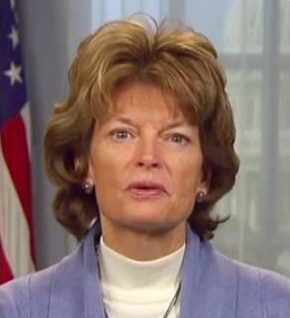 be on the way for the fishing industry. Senator Lisa Murkowski said that she is working to add more fisheries funding in the next round of pandemic relief legislation. “As we think about the impact to our fisheries, $50 million is not going to be sufficient to address the need,” she said. “I have been working with colleagues to urge us in this next round of relief to include $1 billion in fishery assistance funds.” >click to read< 15:07
be on the way for the fishing industry. Senator Lisa Murkowski said that she is working to add more fisheries funding in the next round of pandemic relief legislation. “As we think about the impact to our fisheries, $50 million is not going to be sufficient to address the need,” she said. “I have been working with colleagues to urge us in this next round of relief to include $1 billion in fishery assistance funds.” >click to read< 15:07

NOAA – Their mission
Back in the sixties when I was fishing with my dad we would fish about a one hundred miles east of New Bedford for whiting in the spring. We had a ninety foot dragger. And there were Russian vessels there that were three hundred foot and they were using a small mesh net that caught everything in the water. At the time there was no 200 mile limit. The Russians and other foreign vessels could come into our waters and were restricted to within fifteen miles of our coast. Today no one knows how much damage they did but our fisherman would eventually pay the price. Finally in 1978, we enacted the 200 mile limit. That was great so we thought, but we created a monster. That being NOAA. >click to read< Thank You, Sam Parisi 08:52
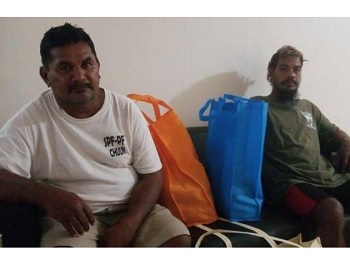
Two survivors of 42 days adrift at sea struggle to return home to Marshall Islands
Two Marshallese men who survived a six-week, 1,640km drift are well and awaiting their return home from Weno, an island in Micronesia. A third man, who was in the boat when it left Marshall Islands on April 2, reportedly jumped into the sea 17 days into the 42-day open ocean drift. Earlier this week, the Micronesian government’s patrol vessel transported the two men from isolated Namoluk Atoll to Weno for medical check ups. “The sea was rough and my husband kept telling Junior to remain on the boat, but he jumped from the front end of the boat,” she said of her phone call. >click to read< 08:42
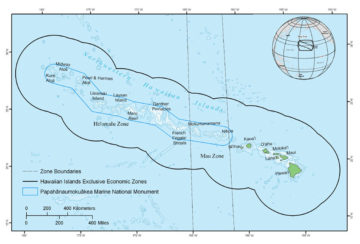
Hawaii Fish Council Urges Trump To Open Papahanaumokuakea National Marine Monument To Fishing
The council’s latest push comes on the heels of an executive order President Donald Trump signed on May 7 that’s meant to slash federal regulations and ease environmental burdens on American aquaculture and commercial fishing industries in the midst of the global coronavirus pandemic. In an opinion piece for the Wall Street Journal, two of Trump’s top advisors, Joe Grogan and Peter Navarro, said the president’s new order would “help reduce pain in the grocery checkout line — and also strengthen U.S. food production against foreign competition.” A provision in Trump’s order calls on the nation’s eight regional fishery management councils to submit “a prioritized list of recommended actions to reduce burdens on domestic fishing and to increase production within sustainable fisheries.” Skeptics, including U.S. Rep. Jared Huffman,, Trump’s order gave each council 180 days to submit recommendations to the Secretary of Commerce. >click to read< 12:42
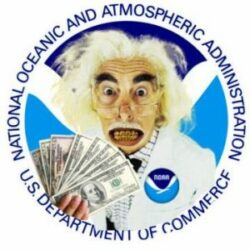
Eight Projects Selected for S-K Funding – Here we go again! Fisherman get the shaft, thanks to NOAA
To those fisherman who put in an application for Saltonstall-Kennedy Program Funding money, I feel badly for you who were not selected. Again, NOAA gave the money to universities, foundations, and other special interests and not you, who it should be for. Unfortunately for those who applied, this has been going on for years under NOAA’s selection of those that apply. I believe when authored by Senators Leverett Saltonstall (R-Mass.) and John F. Kennedy (D-Mass.) in 1954 to promote and market domestic seafood, that they didn’t think our fisherman would be left out. Two years ago, I was chosen by NOAA to serve on a panel to review those who applied.,, by Sam Parisi, >click to read< including the press release. 19:12
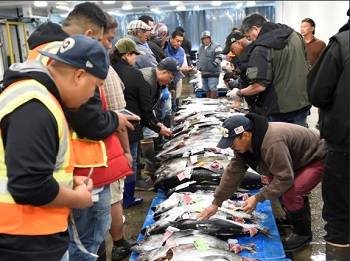
Coronavirus: Hawaii Fishermen Are Stuck In Port As Federal Aid Falls Short
With tourism all but shut down due to Hawaii Gov. David Ige’s 14-day quarantine and restaurant service reduced to takeout for social distancing purposes, there’s less demand for fish. Prices have dwindled to the point where going out on the water can be more expensive for fishermen than the price of the catch coming in. State and federal governments have done little to help out, despite the fact that fish are a critical source of protein for the islands’ residents. “We are the largest food producing industry in the state by a tremendous margin,” said Michael Goto, who’s the auction manager for United Fishing Agency in Honolulu. “If we saw a complete shutdown of fishing effort that would be devastating.” >click to read< 16:23
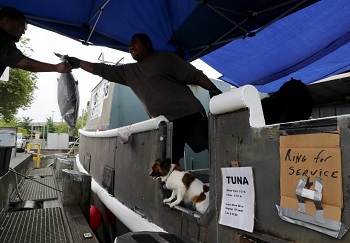
‘Baboom!’ St. Jude returns with 48 tons of tuna and no restaurant market thanks to coronavirus so they are selling it at Seattle’s docks
When the tuna boat St. Jude motored out of Anacortes in November for fishing grounds 5,000 miles away in the South Pacific, few people outside of microbiology labs had ever heard the word “coronavirus.” By the time the 95-foot vessel docked in Seattle this month, the microbe had shaken the entire world and turned the seafood business upside down. “Baboom!” said owner and captain Joe Malley, who returned from the six-month voyage to find the primary market for his high-quality albacore had vanished. “Who could have anticipated this?” >click to read< 11:19
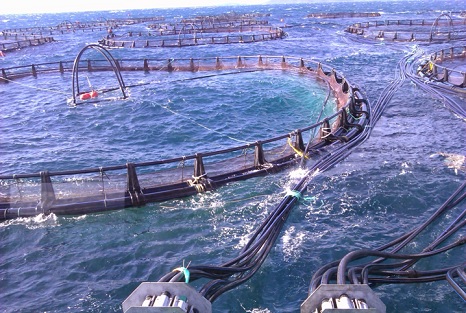
Trump Executive Order Opens the Door for Massive Industrial Fish Farms in Oceans
Last week, the Trump administration announced an executive order opening the door for large-scale fish farming. That order, as reported by the Food and Environment Reporting Network (FERN), is designed at its core to expand the scope and facilities for aquaculture. What that likely means is a reduction in regulations, and the creation of large offshore fish farms.,, While offshore fish farms would be a boon to major seafood corporations, smaller fishermen would be harmed by it in several ways. Those environmental effects could deplete the health of wild waters, which fishermen depend on. They could also flood the market with cheaper farmed fish, harming the demand for more sustainably caught seafood. >click to read< 08:04
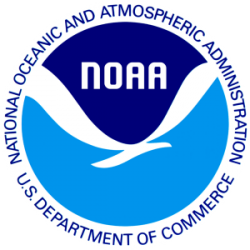
Commerce Secretary Announces $300 Million CARES Act Allocation – NOAA will disburse funds through partners
As a next step, NOAA Fisheries will use these allocations (see below) to make awards to our partners—the interstate marine fisheries commissions, Puerto Rico, and the U.S. Virgin Islands—to disburse funds to address direct or indirect fishery-related losses as well as subsistence, cultural, or ceremonial impacts related to COVID-19. “We are going to rely primarily on our partners at the interstate marine fishery commissions during the award process because they have a demonstrated track record of disbursing funds provided to them quickly and effectively,” said Chris Oliver, Assistant Administrator for NOAA Fisheries. Read the Summary of Allocations, and review the question and answer section. Q. Who should affected fishermen and communities contact about accessing this funding? >click to read< 11:00






